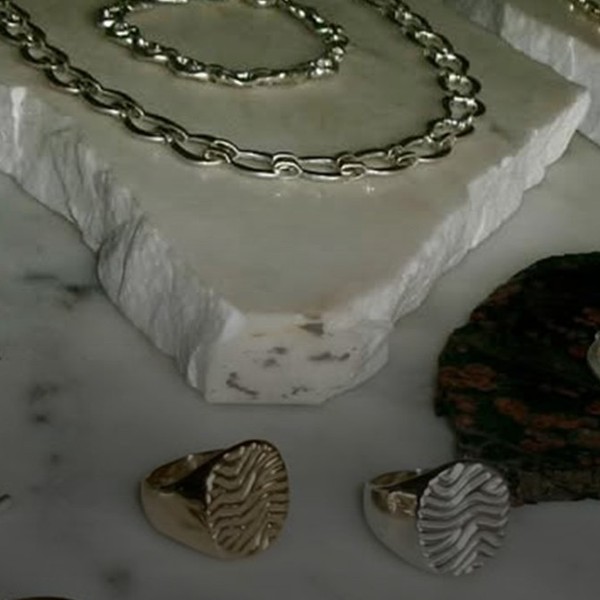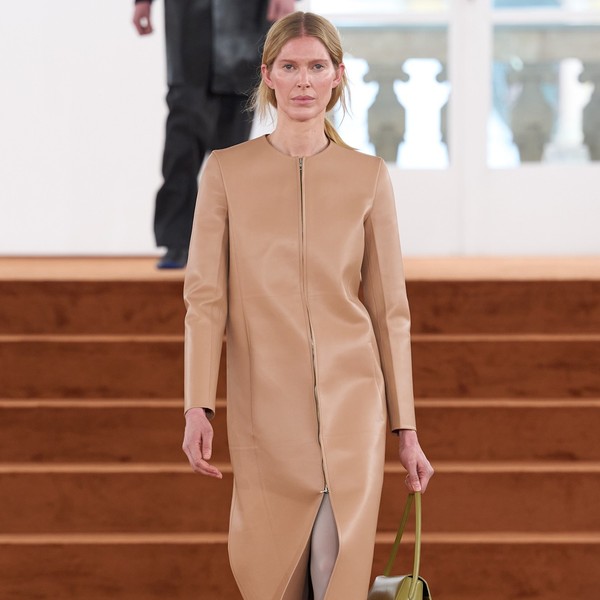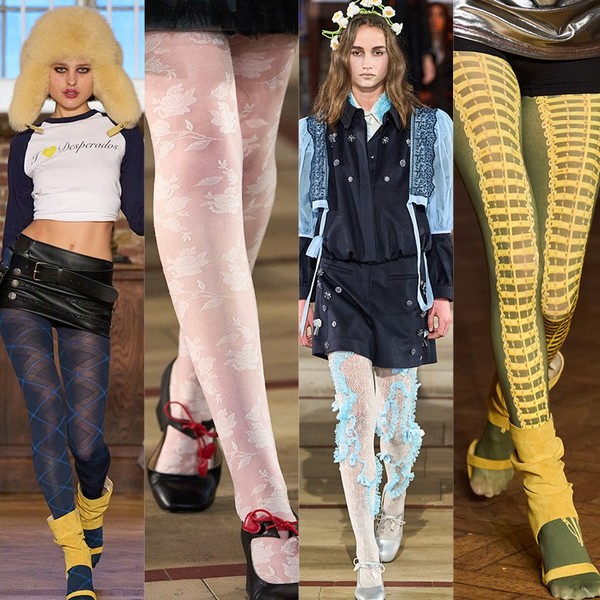Nomi Ruiz Is Back With A Vengeance
"It was never about being famous or being seen; it’s who I am. I’m an artist. It’s in my soul."

In 2022, Nomi Ruiz announced to her followers that she was retiring from music after dropping her intensely autobiographical, hip-hop- and R&B-soaked album Hi-Def Femme. It would have been her swan song, exiting an industry that had both elevated and exhausted her.
Today, she’s in her happy place (Greece), recharging as she steps into one of her most energized eras yet—with a brand-new album on the way. Ruiz calls me just days before the release of “The Spell,” the third single from Love Louder, her joint album with longtime friend, collaborator, and fellow Nuyorican Eli Escobar, out June 27. "‘The Spell’ is about looking back at someone you once loved intensely in a beyond toxic way and wondering, what was the purpose of all that madness you went through?" Ruiz says. “After the spell was broken, what did it all mean? What did you get out of trying to break me? How does it feel to have broken yourself instead? How does it feel to see me shine while still living in the shadows where I found you?”

Nadine Fraczkowski
Nomi Ruiz has been captivating audiences for almost two decades, starting from when she was lighting up international stages as the frontwoman of Hercules and Love Affair in 2008—“No one really gives that project the credit it deserves, but it opened doors for queer musicians in electronic music,” Ruiz recalls—to fronting her electro-pop outfit, Jessica 6, to collaborating with the likes of ANOHNI and Honey Dijon. Her voice possesses a bewitching, come-closer intimacy, whether she's singing about “Pussy Power," on a self-love anthem with Keinemusik or rapping about “the cultural exchange of sex and money” on “Juice,” the second single from Love Louder.
Her new album's glittering-yet-gloomy lead single, “Full Fantasy,” is characteristic of Ruiz’s work as a whole: electrifying, soulful, and transportive. Her menacing pipes slice through sinister synths and skittering drums, conjuring the kind of sweaty, chaotic tension that could soundtrack an A24 film’s unraveling club scene or a high-speed car chase beneath a neon-lit skyline. “‘[It's] a quintessential New York City summer love song,” says Ruiz. "[It’s all about] letting guards down, letting lust seep in, losing yourself to desire.”
The new album is both a reintroduction and a crystal-clear reminder that Ruiz is not only still here—she’s still pushing boundaries, telling the stories no one else will, and crafting gorgeous, gut-punching art (the kind that might make longtime fans feel an understandable urge to scream, “Give Nomi her flowers!”).
Coveteur caught up with Ruiz to discuss her wild early years spent on the road, surviving the music industry as a Puerto Rican trans woman, and how time away brought her back to her love of music.
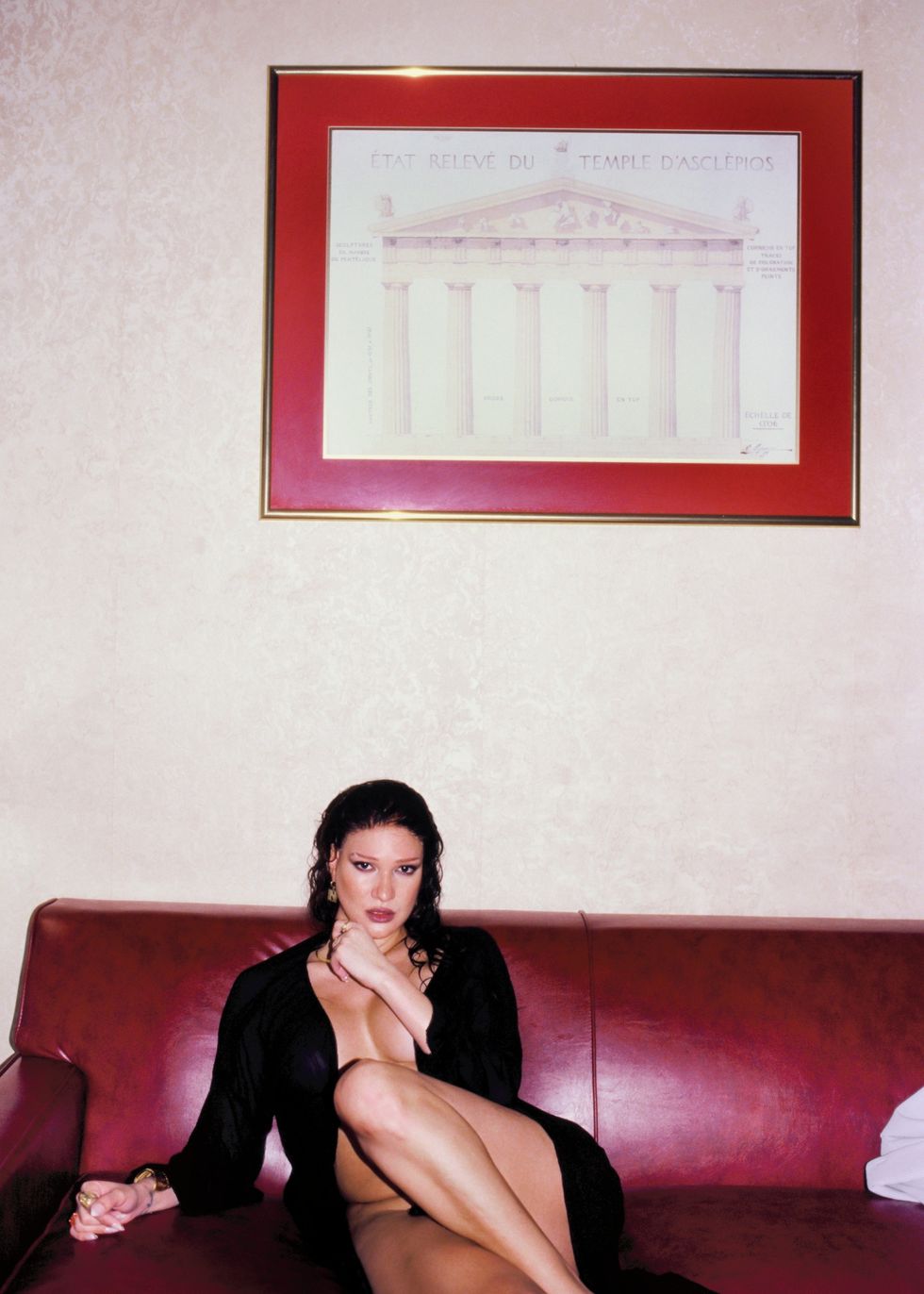
Nadine Fraczkowski
You’re calling in from Greece, where you’ve built a devoted following. What brought you there?
Nomi Ruiz: "I have a special connection to Greece. I feel like it’s the place where I finally realized, wow, I reached my goal, like I was living in a dream or something. I did more than I ever thought I would in my life, especially with music. I’ve had some really big moments here. 'White Horse' with Jessica 6 hadn’t even come out here yet, but somehow it blew up, and we ended up performing it at basically the VMAs of Greece. I never imagined performing at an award show in a stadium with thousands of people. Greece has always made me feel like I’m living my full fantasy."
Speaking of big moments, in 2012, your performance on a nationally televised show in Greece sparked controversy simply because a trans woman dared to share the stage with a cis male pop star. Can you take us back to that moment? What was it like for you?
NR: "I was living here at the time, working on a new Jessica 6 record. There’s this televised benefit concert called MadWalk—kind of like VH1’s Fashion Rocks, with live performances and fashion shows. That year, a friend suggested I perform at it and collaborate with Sakis Rouvas, who was one of Greece’s biggest stars at the time. He listened to my song 'Bad Thing' and loved it, so we performed that. We killed the performance. I was just living my Britney Spears fantasy. Then, the next day, it was a full-on scandal. It was on every talk show. They said things like, 'This trans girl performing with Sakis—it goes against our culture, our values.' It started a huge public conversation. It shifted the culture. People began talking about transphobia and representation. Some advertisers even pulled out of networks because of their transphobic content on TV. At first, I was shocked and couldn’t leave the house. But now, I think it’s cool because a lot of the kids refer to that as a progressive moment and a reference point for trans and queer artists and culture.
You announced that 2022’s Hi-Def Femme would be your final album. What led you to that decision, and what was happening in your life at the time?
NR: "I wasn’t healthy mentally. I feel like I’ve been through so much in the music industry—it’s been such a roller coaster. It’s so cliché, but the music industry is one of the last industries to really deal with all the toxicity that’s everywhere in society. Every level I tried to reach, every step forward, there was another glass ceiling I had to fight through, ten times harder than anyone else in the game. At some point, I was just exhausted. I’d been traveling nonstop, touring my ass off, trying to prove myself. I was doing it all alone—no label support, no agent. I was burnt out. So many other artists were living comfortable lives, and I was still hustling like crazy. Then COVID hit, and I realized I hadn’t had a real home in years. For about 15 years, since the Hercules and Love Affair days, I’d been living out of a suitcase and never stopped touring. The pandemic forced me to pause, get an apartment, and focus on my mental health. I needed that."
Did that moment make you rethink your creative path?
NR: "Definitely. I started to press pause and reassess everything. I was fed up with being taken advantage of and not being taken seriously. People didn’t even believe I wrote my own songs. Like I was just some girl in the studio blowing for beats and hooks or something, when in reality, I put my heart and soul into every lyric and melody. If you hear me singing on a track, 99.9% of the time, I wrote the vocals and lyrics. I finally just snapped. I thought, I can’t do this anymore. I need to pivot, try something else. I started acting, which I loved. I began exploring other sides of my creativity. I love storytelling, whether it’s essays, songwriting, music videos… There are so many ways to tell stories, and I wanted to expand."
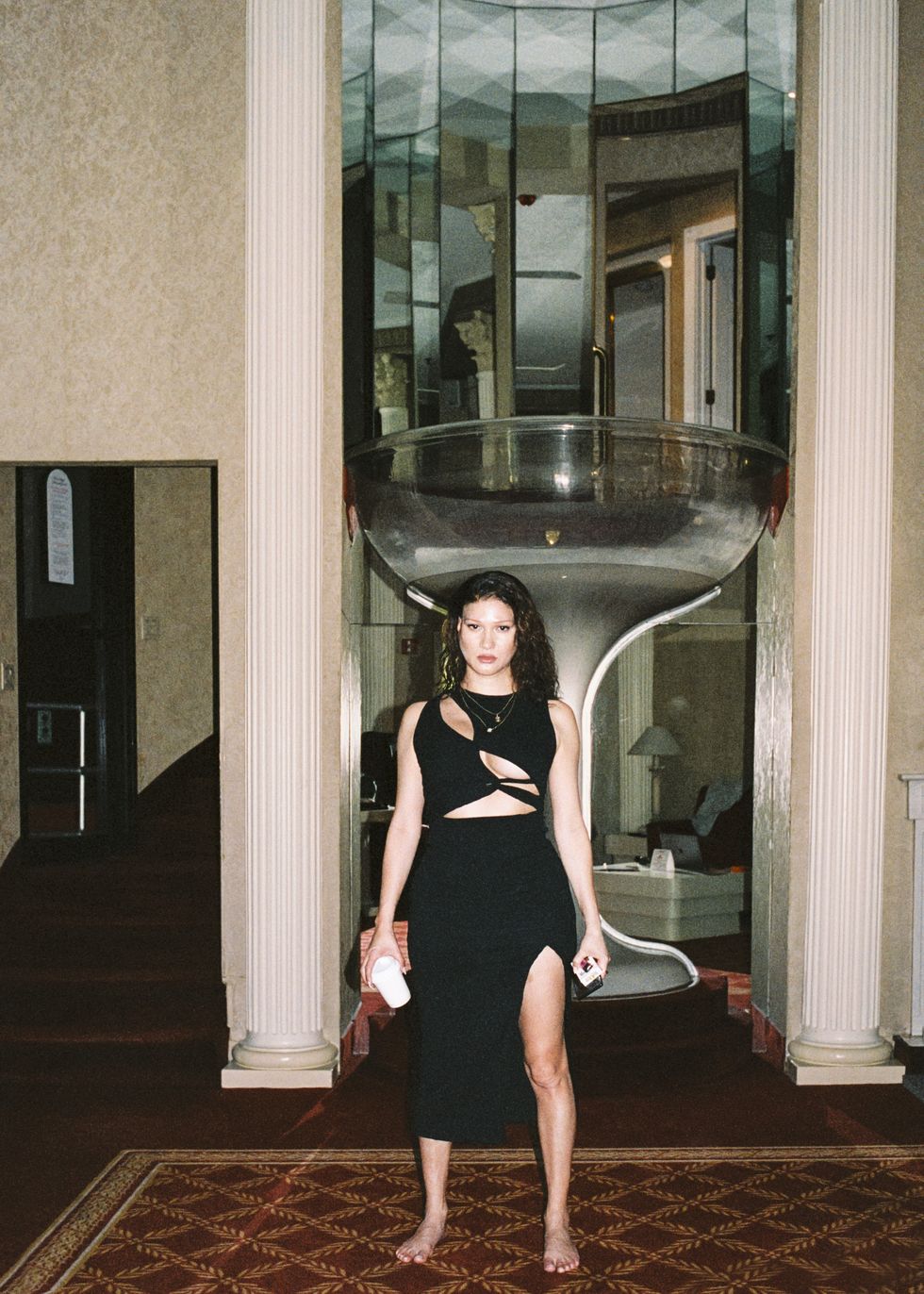
Nadine Fraczkowski
Your writing never shies away from or sugarcoats real-life topics, like the complexities of loving trans women in a toxic world, which you explore through both song (“The Storm Inside”) and essay form. Have you always seen yourself as an unfiltered storyteller?
NR: "Yeah, I started publishing essays to expand my voice and touch on topics I felt weren’t spoken about out loud, like the various shades of domestic violence we experience and addressing the stigma men face for loving trans women. Telling stories through songs can be limited, especially for someone like me who is only allowed to be on the mood board but is constantly silenced. Writing essays helped get my message across because representation in the media is so limited. People say we’ve progressed; we have so much visibility now—we have trans models and actresses—but honestly, there are only a handful of trans artists in music. There’s almost no representation of Black and Brown female trans artists in music, especially in soul and R&B—it’s very rare."
Thankfully, you’re back with new music. What brought you back after stepping away?
NR: "When I stepped back, I remembered why I love music in the first place. It had become just a business to me, and when I removed that pressure, I found the joy in singing again. It was never about being famous or being seen; it’s who I am. I’m an artist. It’s in my soul. I have to tell my truth. I have to tell my story. I have to keep sharing my emotional journey just to stay alive."
"It was never about being famous or being seen; it’s who I am. I’m an artist. It’s in my soul."
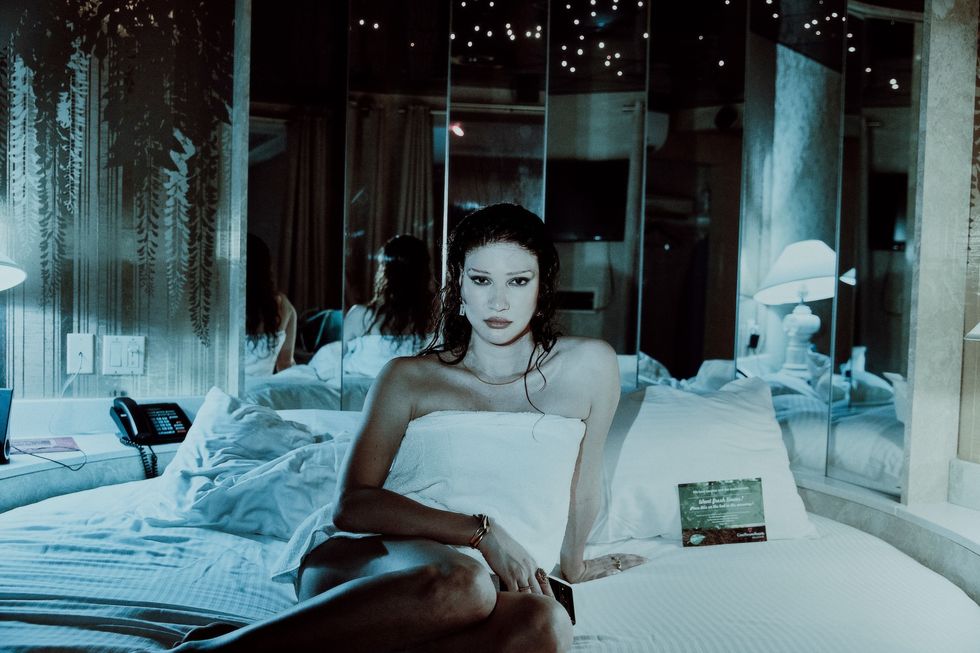
How did you and Eli Escobar meet?
NR: "We met through Stretch Armstrong, who’s the epitome of New York. Eli and I are both Puerto Rican, native New Yorkers, and came up in similar scenes—I was making R&B and hip-hop, and he was producing hip-hop beats. Over time, that New York hip-hop energy started blending into the club scene. I was always out dancing at places like Café con Leche, The Tunnel, and Sound Factory. Even though I was deep in hip-hop, I had this love for house music. But I never thought I’d make house music until later."
When did it click creatively between you and Eli?
NR: "When Eli sent me a track called “Desire,” I remember hearing it and thinking, oh my God, this is beautiful. And it just made sense for my voice. Like, it felt like it was made for a Puerto Rican girl from Brooklyn to sing on."
Love Louder has been in the works for a while. What’s the story behind it?
NR: "We’ve been working on it for about six years. It started during a tough time, right when I was feeling kind of over everything—over music, over the industry. And then, around that same time, our close friend James (aka DJ Blu Jemz), who was part of our nightlife crew, got diagnosed with cancer. He was this connective tissue between Eli and me, like we were all part of the same little family. James always loved my music, especially the stuff I did with Eli. James kept saying, 'You two need to do a full record together.' He really believed in it. So we finally started working on it, and then James passed right when we got it started."
That must have completely shifted the emotional core of the project.
NR: "One of the last times I saw him, he told me again, 'You have to do this record with Eli. And you need to rap on it, too, because you’re such a good rapper.' It felt surreal. I was about to go on tour, and I remember thinking, should I even go, or should I be staying here with James? But I had to work. I figured I’d see him when I got back. While I was on the road, Eli kept sending me tracks, and I’d write to them, just thinking about James the whole time. Some of the songs are literally about him. I was working on 'Blindside,' which is about the feeling of being chased by death, and right as I was writing it, I got the text that James had passed. It broke me. It was so intense getting that message as I was vibrating on what he must be feeling like. I broke down that night."
Did making the record help you process everything that was happening?
NR: "Definitely. There’s another song on the album, “Go Be Gone,” that’s fully about him. It’s me giving him permission to let go, to cross over—telling him there’s more than just this body, this life. It became this therapeutic process for me and Eli, too. We’d be texting all the time, sending files back and forth. We began processing everything through the music. That’s where the title Love Louder came from. I realized, if you love someone, say it. Don’t hold it in. The world is chaotic and unpredictable. This album became a reminder for me to be present. To lead with love, no matter what."
What can you share about Nomi Ruiz: Love Louder Live!, your show on September 26?
NR: "I put together a show with a lot of songs from the new record, plus some from my Jessica 6 albums, my work with Keinemusik, and songs people love but haven’t heard live yet—stuff I’ve been getting DMs about. My goal is to make everything live—no backing tracks. It’s going to be all about real, live musicianship. "
With the release of Love Louder and a major solo show underway, what else are you excited to share with the world next?
NR: ""I''m currently writing a memoir, which has been a really intense process. Revisiting the past in immense detail and putting things into perspective in a way that gives every turn further meaning has been so rewarding… but also extremely painful. Shedding is a painful process. I hope my story can help others break the chains society has imposed upon us all. To undo the damage. I’ve also been in the studio working on a new solo record that will feel and sound like nothing I’ve ever done before. It will accompany the memoir perfectly."

